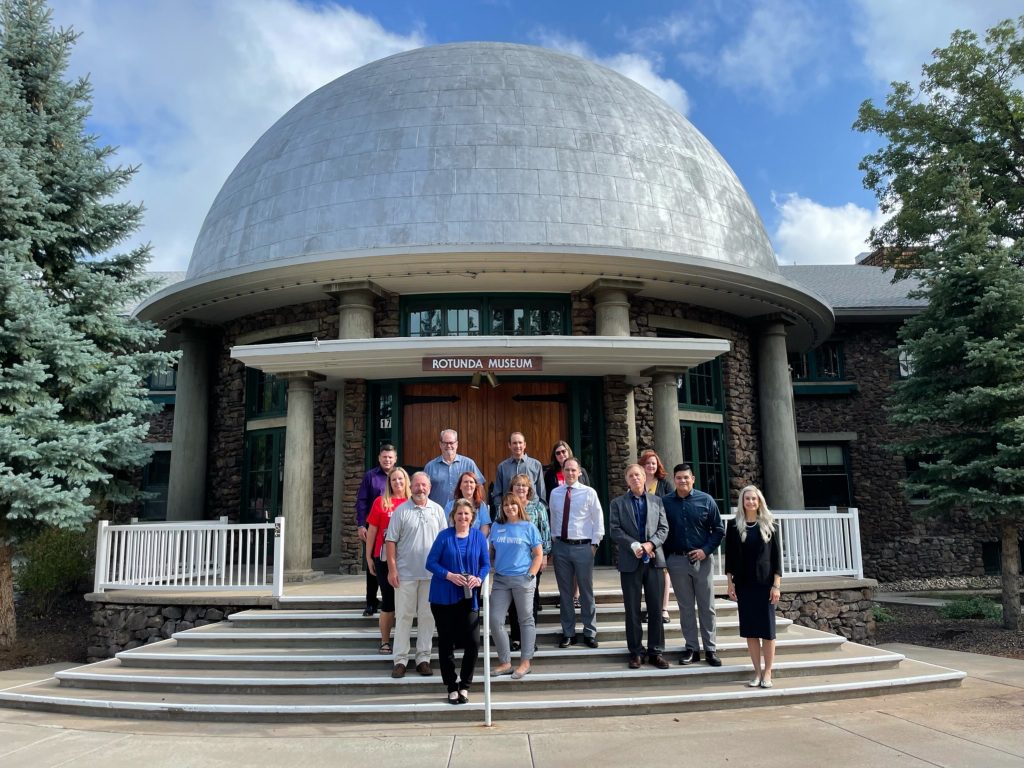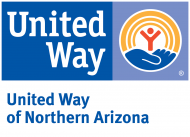While many companies and organizations Step Up for Our Community through their workplace campaigns for UWNA, some take an extra step by becoming Pacesetters; they hold their workplace fundraisers in the month prior to the official annual campaign to help jumpstart it.
One of the most successful at this is Lowell Observatory, where typically 25% to 30% of the 163 employees participate in the Pacesetter campaign each year.
The person responsible for this pre-campaign effort at the observatory is Mattie Harrington. She’s the Executive Assistant to the Executive Director Jeff Hall; Director of Philanthropy Lisa Actor; and the observatory’s Sole Trustee, W. Lowell Putnam IV, the great-grandnephew of its founder, Percival Lowell.
The Pacesetter fundraising outreach is conducted primarily via email, she said, with her sending out a communication to the staff once a week reminding them of the work UWNA supports in early childhood education, youth development, and crisis response.

“I’ll remind them about what United Way does in the community and ask them, don’t you want to help with that?” she said.
Lowell Observatory has a long history with UWNA, noted Kevin Schindler, the observatory’s Historian and Public Information Officer. In fact, Bernice Giclas, wife of astronomer Henry Lee Giclas, served on the organizing committee that formed what would become UWNA in 1966.
“The observatory has been around since 1894 and really has grown up with Flagstaff and Arizona,” he said. “It has always been a community-minded place so it seems natural for us as individuals to give back; we want it to be a better community.”
Another contribution from Lowell personnel has been the creation of UWNA’s Summit Society, which recognizes donors who give $500 or more during the annual campaign. Dr. Bob Millis, a former Director of the observatory, was the driving force behind the Summit Society and he and several observatory colleagues were charter members.
“There are always people who need help in any community, and there are always people who want to help,” Millis told us last year. “Any single individual might not be aware of the exact needs in the community. They might not have the time or the know-how to investigate how best to apply the resources they can afford to give. United Way does a very good job of finding those needs, prioritizing them and addressing them effectively.”
Harrington believes that the observatory’s status as a fellow nonprofit also impacts why its employees continue to support UWNA.
“We depend on the generosity of others to do what we do,” she said. “We all just need to help each other. We appreciate being part of the campaign and whether it’s donating or filling sandbags, we’re happy to help in any way that we can.”



